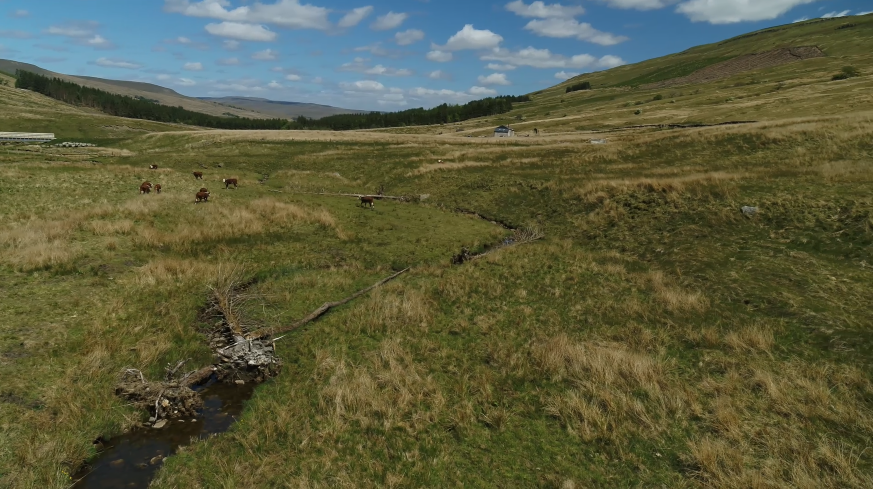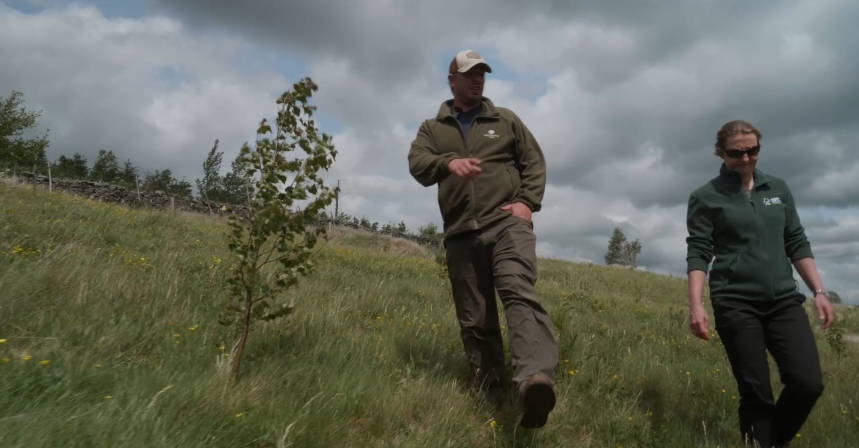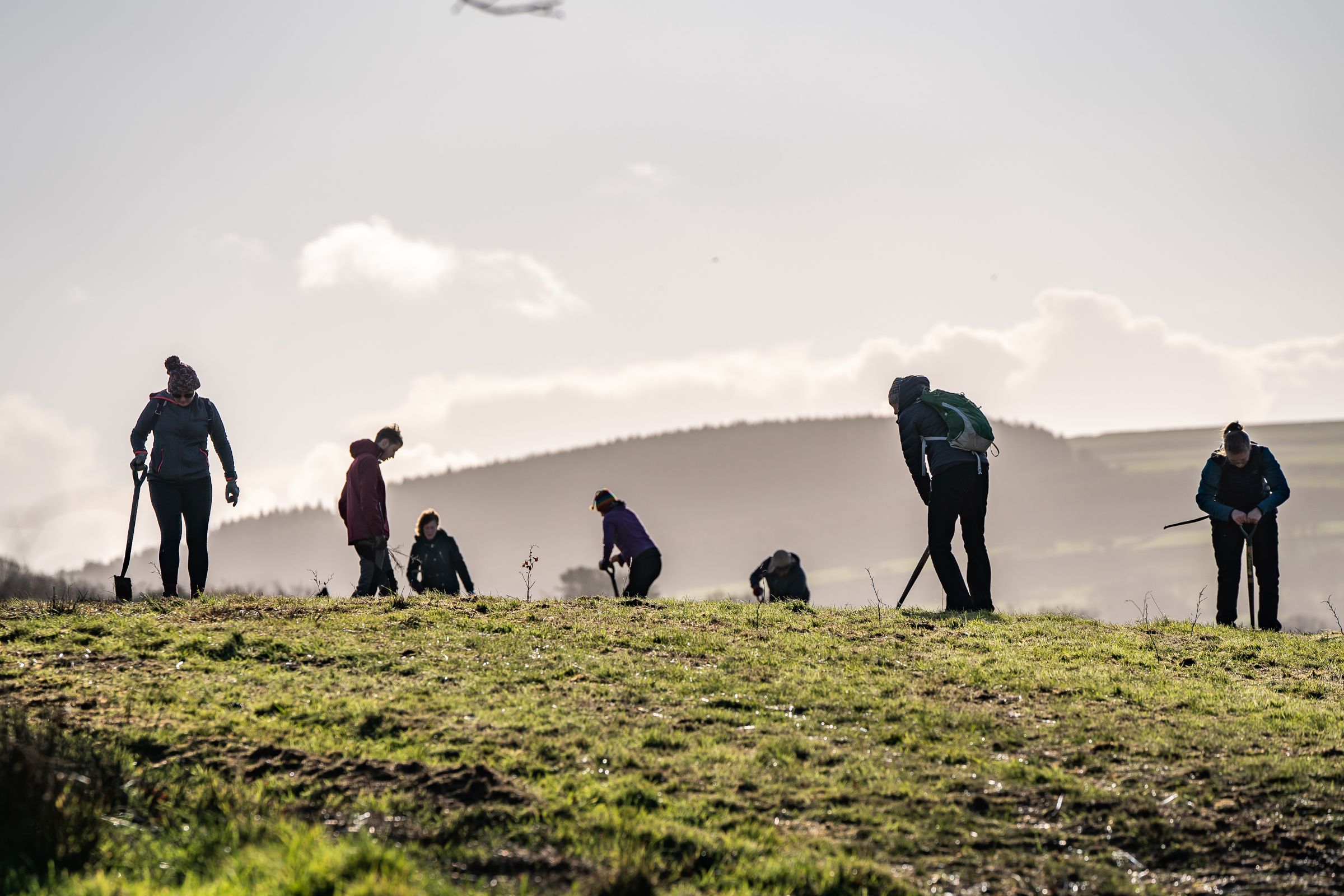Forests perform vital ecosystem services, providing conditions for abundant, clean water supplies, flood management and healthy soils teeming with life. The Woodland Trust have held FSC certification, evidencing the quality of the management of their forests, for more than twenty-five years. Now they are verifying the impacts of their work at reafforestation and regenerative forestry sites in Wales and the Yorkshire Dales, having been audited against FSC’s Ecosystem Services Procedure by the Soil Association.

Snaizeholme, a site of 1,387-acres close to the iconic Ribblehead Viaduct in the Yorkshire Dales National Park, is one of the boldest habitat restoration projects in the English uplands. Its careful management and restoration includes the creation of one of the largest new native woodlands in England. The glacial Snaizeholme valley, once part of the Forest of Wensleydale, is a flagship woodland creation project for the White Rose Forest, the Community Forest for North and West Yorkshire and the Northern Forest. Now in the third planting season, this complex habitat restoration and nature recovery project sees 700 acres of native tree saplings planted alongside huge restoration projects, including 280 acres of upland peat bog, 180 acres of limestone pavement and over 200 acres of riverside meadows. Snaizeholme Beck (stream) is at the headwaters of the catchment for the city of York, parts of which are increasingly prone to flooding as are many of the villages and towns downstream. A donation from FSC Certificate Holder, and global hygiene and health company, Essity, is supporting research that will help measure, verify and deepen our understanding of the impacts of nature-based solutions on water quality and flood management.

At Snaizeholme, farming practices over generations have left the land almost devoid of tree cover. But at Brynau Farm, near the town of Neath in South Wales, where the Trust manage 235 acres, a long-forgotten ancient woodland is being transformed into a thriving sanctuary for wildlife. Alongside the veteran sessile oaks and alder coppice, barren fields have also been planted with saplings to become vibrant new woodland, joining young and old to form part of the National Forest for Wales. The mix of new woodland, ancient woodland and wood pasture at Brynau provides a mosaic of habitats that will suit a variety of different species. Since woodland creation work began in 2020, the population of small mammals, like voles, mice, rabbits and hares has increased rapidly, in-turn attracting apex predators such as barn owls, kestrels, hobbies and merlins. Creating new native woodland in this area is expected to provide multiple benefits to the community of Neath, including natural flood management, biodiversity enhancement, carbon capture and enhancement of soil conditions. The new woodland will buffer the remaining fragments of ancient woodland and also provide a significant new area of accessible greenspace for surrounding communities. Third-party verification against the FSC Ecosystems Services Procedure will regularly assess the impacts of native woodland creation on stabilising slopes, intercepting rainfall, reducing soil erosion, increasing organic matter and reducing soil compaction, while increasing soil water holding capacity. The introduction of a modified grazing regime, involving the removal of sheep and the introduction of low density, native Welsh white cattle, is designed to increase surface roughness and the structural complexity of ground vegetation, thereby decreasing overland water flow rates and soil erosion.

While visitors are welcomed to Brynau Farm, not least to witness the impressive display of native bluebells during spring, you can visit the somewhat less accessible Snaizeholme from the comfort of home thanks to a new film produced by FSC UK and The Woodland Trust. The short film, featuring interviews with Site Manager, Alec Pue, and Karen Paterson, FSC UK’s Forests & Ecosystem Services Manager, gives an overview of the epic site, the ambitious project, and the application of FSC Verified Impact. More information on sponsoring projects in the UK, or around the world, is available from FSC UK.
More information:
Essity is a leading global hygiene and health company dedicated to improving well-being through their products and services. Sales are conducted in approximately 150 countries under the leading global brands TENA and Tork, and other strong brands, such as Actimove, JOBST, Knix, Leukoplast, Libero, Libresse, Lotus, Modibodi, Nosotras, Saba, Tempo, TOM Organic, Vinda and Zewa. In the UK, Essity’s leading brands include Cushelle, Velvet, Plenty, Bodyform, and Issviva. Essity breaks barriers to well-being and contributes to a healthy, sustainable and circular society. Essity have held FSC Chain of Custody Certification since 2006 (FSC®C003255).
The Woodland Trust are the UK's largest woodland conservation charity and have a vision of a world where woods and trees thrive for people and nature. The Woodland Trust is a charity registered in England and Wales (No. 294344) and in Scotland (No. SC038885). They have held FSC Forest Management Certification (FSC®C009406) since 1998, their certificate covers more than 25,000 hectares of UK forests.
The Snaizeholme Estate was acquired by the Woodland Trust thanks to the generosity of their incredible individual supporters, charitable trusts and corporate partners.
The trees, fencing and planting at Snaizeholme have been funded through the White Rose Forest and their Trees for Climate programme, part of the Government’s Nature for Climate fund.
More information available here:
https://www.woodlandtrust.org.uk/support-us/give/appeals/snaizeholme/

